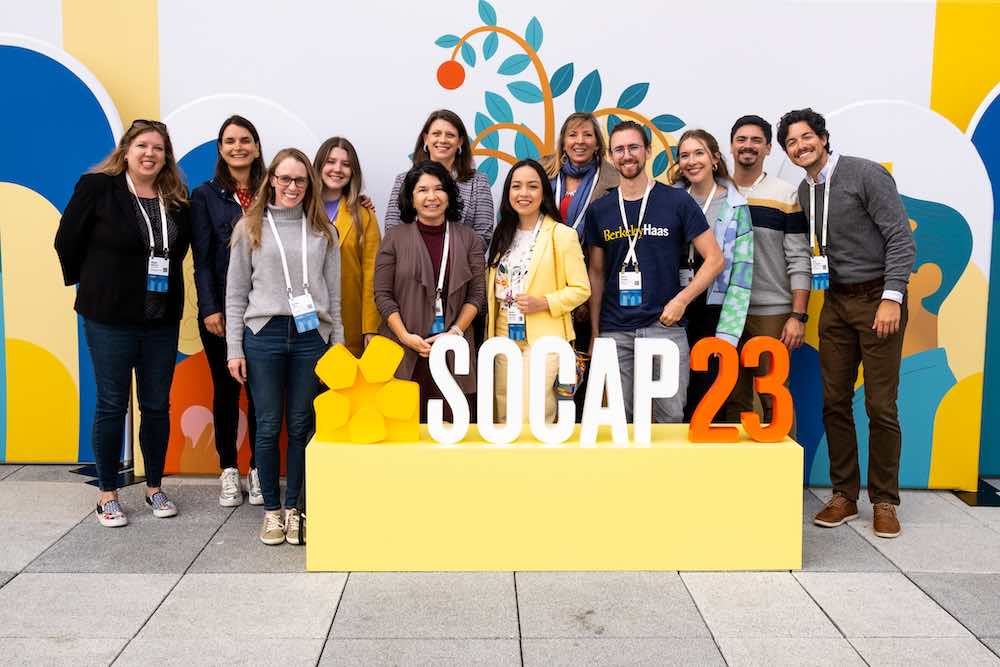By Vineet Sahni, MBA Candidate, Class of 2024
In the evolving space of impact investing, understanding and demonstrating the positive impact of investments is crucial for attracting capital, ensuring accountability, and driving continuous improvement. Impact measurement and management (IMM) is no act of lip-service, but rather a thoroughly studied and co-developed practice, enabling accountability and continuous improvement.
Highlights from SOCAP 2023

Unsurprisingly, IMM was chosen as one of nine main tracks in the 2023 SOCAP conference. The topic featured several key discussions that resonate with the evolving landscape of impact investing:
-
State of Impact Measurement and Management: SOCAP 2023 opening panel on the topic of IMM brought together the curators for the IMM council. Moderated by Lauren Sercu from the Sorensen Impact Advisory, who is also the main organizer of SOCAP, this panel examined global and regional perspectives on the state of the field.
-
Evolving Impact Measurement Standards: While impact management programs, social metrics and long-term outcomes goals are all the rage, the quest for meaningful key performance indicators is ongoing. Dipti Pratt fron TONIIC moderated this discussion, which featured several practitioners in the space including Sasha Dicter, founder and CEO of 60 Decibels, which aims to build a global impact database for benchmarking and improving social performance.
-
Cancelling Vanity Metrics: In impact investing, without accountability built into the system, even the most well-intended investors, funders and beneficiaries may have little or nothing to show for their efforts. Moving beyond vague theories of change and vanity metrics, as discussed by this panel of speakers from Advantage Capital and Pathstone, amongst others, is part of the unlearning that needs to happen before the real work begins.
-
Co-creation and Collaboration, not Isolation: Impact measurement design and management is not a solitary endeavor. This conversation explored strategies for constructive engagement with regulators, identifying common goals, and fostering open dialogue to co-create effective rules that balance investor interests and societal impact. On the table were California State Representative, 14th District, Buffy Wicks, and Antony Bugg-Levine, from middle-market investment firm Lafayette Square.
-
Convenient and Cost-Effective Measurement: The Avivar Capital-led panel highlighted investors and investees that are forging new paths in gathering compelling data and cost-efficiently report on financial performance and social impact. On the stage were Lolita Nunn from Potlikker Capital and Jessica Haselton from ECMC Foundation.
-
Sharing the Burden of Impact Measurement and Management: As the demand for social and environmental impact accountability grows, stakeholders across the investment ecosystem face challenges in determining who should bear the expenses of measuring and assessing these impacts. This panel explored the critical question of how to equitably distribute the burden of impact measurement costs. Speakers included Leslie Cornell, General Counsel at Social Finance and Kelly McCarthy, Head of Impact at The Vistria Group.
Additionally, I had the privilege of having lunch with James Blair, MD at Baraka Impact Finance. “Investing in Heath tech solutions, particularly in the global south, is mired with scarcity of reliable data, hindering independent evaluation and decision-making”, James told me. Enter Baraka Analytics, a Fintech/SaaS solution which aims to build a vetted pipeline of solutions with contextualized data from WHO, World Bank and local partners, expediting investor reviews and reducing due-diligence costs. Now, that’s a cool crossover between fintech and impact investing!

SOCAP and the Future Of Impact Measurement and Management
SOCAP23 has undoubtedly played a pivotal role in advancing the IMM agenda, providing a platform for shared learning and fostering a collective commitment to advance the practice of measurement and management in order to keep up with the urgency of this time. Though there are still too many bespoke measurement approaches and competing standards, it is also the work of the impact investment industry stakeholders to continue to innovate and go beyond the status-quo, as the work is never quite done! Lastly, I would be remiss not to highlight the incredible work being done right here at Haas, including the Social Impact Metrics course, taught by Professor Colin Boyle. If you are interested in learning more about social impact evaluation methods and the challenges and opportunities within, I highly recommend taking this course next Fall!
